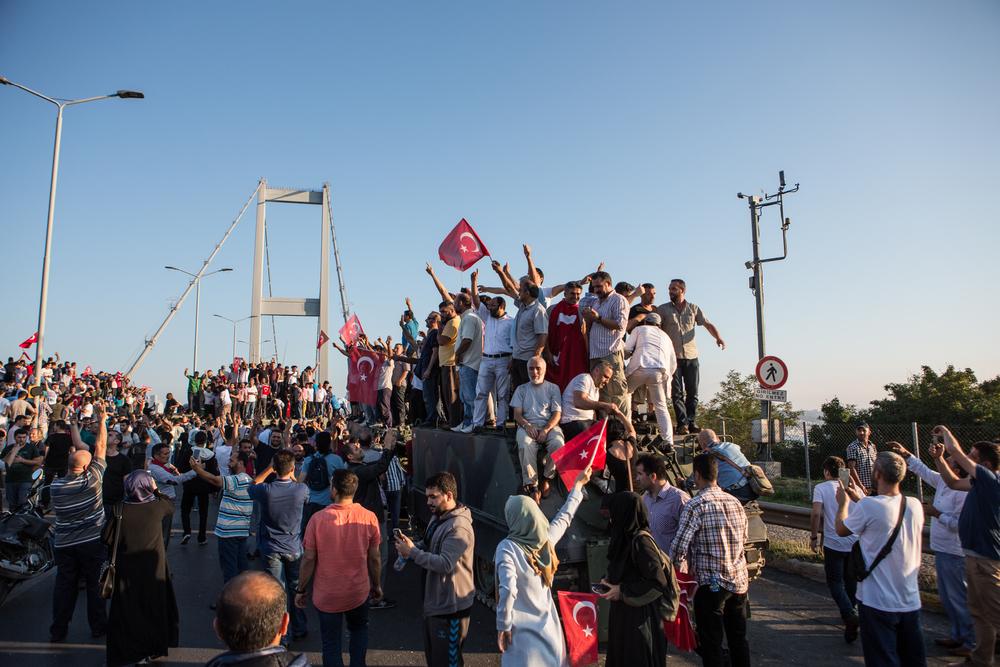Political turmoil in Turkey following the coup attempt on Friday initially impacted markets negatively. The market is however optimistic most sectors as well as the Turkish Lira will rebound. However, travel companies may have reason for concern if we see prolonged political unrest.
In a move to crack down on the perpetrators, the number of people incarcerated for connections to the attempt has risen to 6,000. President Erdogan has promised to “purge state bodies of the virus that caused the revolt”.
The number of casualties has risen to close to 300.
Accusations of incitement have been directed towards Fethullah Gulen, head of the Hizmet movement. He is supported by many military officials in Turkey.
To counteract allegations Mr. Gulen, who has been living in the United States for 15 years, he suggested that President Erdogan may have staged the coup himself in an effort to better his political position.
A Turkish minister has accused the United States of taking part in supporting the plot against the government.
In midst of the turmoil the Turkish Borsa Istanbul 100 Index went down nearly 5 percent. Turkish bonds have fallen, with 10-year yields rising as much as 9.64 percent. The Turkish Lira tumbled to its lowest in eight years, losing 4.6 percent.
After plunging on Friday evening, the Lira has retraced 50 percent of its losses. Other affected emerging market currencies such as the South African Rand and the Mexican peso, which dropped initially after the coup attempt, have rebounded 1.7 percent and 0.7 percent respectively.
Experts, such as Head of EM Asset Allocation at UBS, Michael Bolliger, are confident that Turkey will manage a full recovery and markets will not be hit too hard by the political uncertainty.
It is clear that the situation is fragile as Turkey is greatly dependent on foreign investment to run its consistent current account deficit. But Bolliger told Bloomberg TV this morning that he does not expect a massive outflow of foreign capital.
The Borsa Istanbul 100 gained 15.5 percent so far this year, outperforming the broader MSCI Emerging markets index by 4.5 percent and the last time the military openly involved itself in Turkey’s domestic politics in 1997 the Index only dropped by 15 percentage points, starting its’ recovery after only three trading days and closing on a 254 percentage gain that year.
Bolliger also stated that the future movements in the markets will depend greatly on actions taken by the government to provide liquidity, ensure investor confidence and reinstall the presidential system.
The Turkish Prime Minister convened with his cabinet this morning at 9 am to discuss fiscal measures. The Finance Minister has reached out in a 2 hour long conference call to international investors expressing there is no need to panic. The Central Bank has promised unlimited liquidity to banks in order to ensure confidence.
But President Erdogan is seemingly not ready to reconcile with the parties of the failed coup and looks to strengthen his grip on power. In an address to a crowd of his followers, he stated that he is thinking of reinstating the death penalty which Turkey abolished in 2004 as part of their bid to join the European Union. Erdogan reportedly told the people that those that launched a coup have to pay the price for it. This stance may prolong political instability and violence in Turkey and have negative effects on the markets.
Trouble for travel firms
The real worry at the moment lies however with the travel sector. Turkey is one of the most popular travel destinations for many Europeans and especially British holidaymakers.
The Foreign Office has issued a strong warning to tourists: “We strongly advise you to stay indoors, avoid public places, in particular demonstrations, and remain vigilant.” British Airways have cancelled all flights between the UK and all Turkish destinations. Thomas Cook as well as Thompson are offering refunds and cancelations to their customers.
In the aftermath of the event on Friday Turkish Airlines tumbled 6.5 percent. Malaysia Airports Holdings Bhd., who owns Istanbul’s second largest airport, has dropped 5 percent. Shares of travel agency Tui have fallen 4 percent on the FTSE 100. Thomas Cook dropped as much as 5 percent on the FTSE 250.
This comes only months after Thomas Cook and other companies, whose most popular holiday destination last year was Turkey, saw their share prices drop as much as 19 percent after having to report a 5 percent decrease in summer bookings due to the rising levels of terror threat in Turkey.
While the Lira may be on its’ way to recovery and markets have generally shrugged off the failed coup attempt in Turkey, travel agencies and airlines are likely to feel the negative impact of the events for a while to come.

